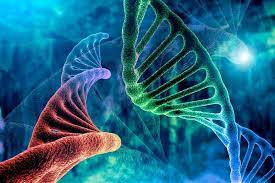A Biological Laboratory’s Need for an Incubator
In biology, laboratory incubators are essential equipment that fosters the growth of microbial cultures. They maintain regulated temperature, humidity and pH conditions that are essential to conducting experiments.
Incubators are commonly used in various laboratories, including microbiology and genetics. Some help to grow bacteria and fungi, while others help to store cultures that will be used later.
Light
An environment with a controlled temperature is provided by lab incubators, which are crucial pieces of equipment for the growth of microbiological cultures. Additional applications include coliform detection, egg incubation, heated storage, food and beverage testing, and pharmaceutical testing.
The refrigerated incubator is essential equipment used to maintain microbiological and cell cultures. It can control temperature, humidity and levels of carbon dioxide and oxygen levels within the lab.
The light entering the laboratory incubator can affect the growth and development of several microorganisms. Therefore, selecting the correct incubator model for your laboratory needs and work environment is essential.
Biological laboratory facilities often need adequate lighting for researchers due to a misunderstanding of photobiology. For example, most regulations that govern animal facility light levels are based on lux, the unit of perceived brightness weighted to the sensitivity of the human visual system.
However, mice and other non-human species are significantly less sensitive to light than humans. Consequently, the light intensity required for welfare monitoring and other facility functions may be considerably reduced. This can lead to increased welfare risks and staff fatigue.
Temperature
The temperature in a biological laboratory is essential for regulating the growth of cells, bacteria and other organisms. The optimal temperature range for growing cell cultures is 37 deg C, but deviations can inhibit growth or eradicate cultures.
Incubators with a controlled heating and cooling system are ideal for maintaining temperatures within the perfect range for bacterial, viral and fungal growth. Depending on the species, the science incubator can be equipped with humidity control or a refrigeration system.
Microbiology labs must monitor their incubators’ temperatures to comply with method requirements. They must record temperatures twice daily, separated by at least 4 hours.
Humidity
A biological laboratory requires a humidity control system that can provide a precise and consistent air humidity level. This can prevent static charges from forming and electrostatically attracting contaminants. It can also prevent the contamination of sensitive testing equipment.
In the United States, for example, numerous regulations define ideal laboratory conditions with temperatures of 20 to 25 degrees Celsius and relative humidity between 30 and 50%. Maintaining these levels can lead to accurate test results, sample contamination, and loss of laboratory funding.
Humidity is a natural part of the atmosphere, coming from water vapor that enters the air when bodies of water like lakes and oceans evaporate. This vapor is removed by condensation when the air temperature drops below its dew point.
Airflow
Biological research requires precise and careful air control, especially when a compound is tested on cell cultures. Particles that contaminate the air, whether from smoke or a spill, could affect the quality of the results and pose a danger to researchers.
The clean bench is a type of hood that uses HEPA-filtered air to provide product protection. Still, it does not offer personal or environmental protection like a Biological Safety Cabinet (BSC). Chemical fume hoods utilize directional airflow to protect lab workers from toxic fumes and particulates.
Laboratory hoods should never be blocked by bulky items that will make the front grill inoperative. This prevents the airflow grill from capturing and releasing contaminants from outside, which can ruin experiments.
Read more: Foot Soak: The Ultimate Form of Relaxation That You Should Enjoy

